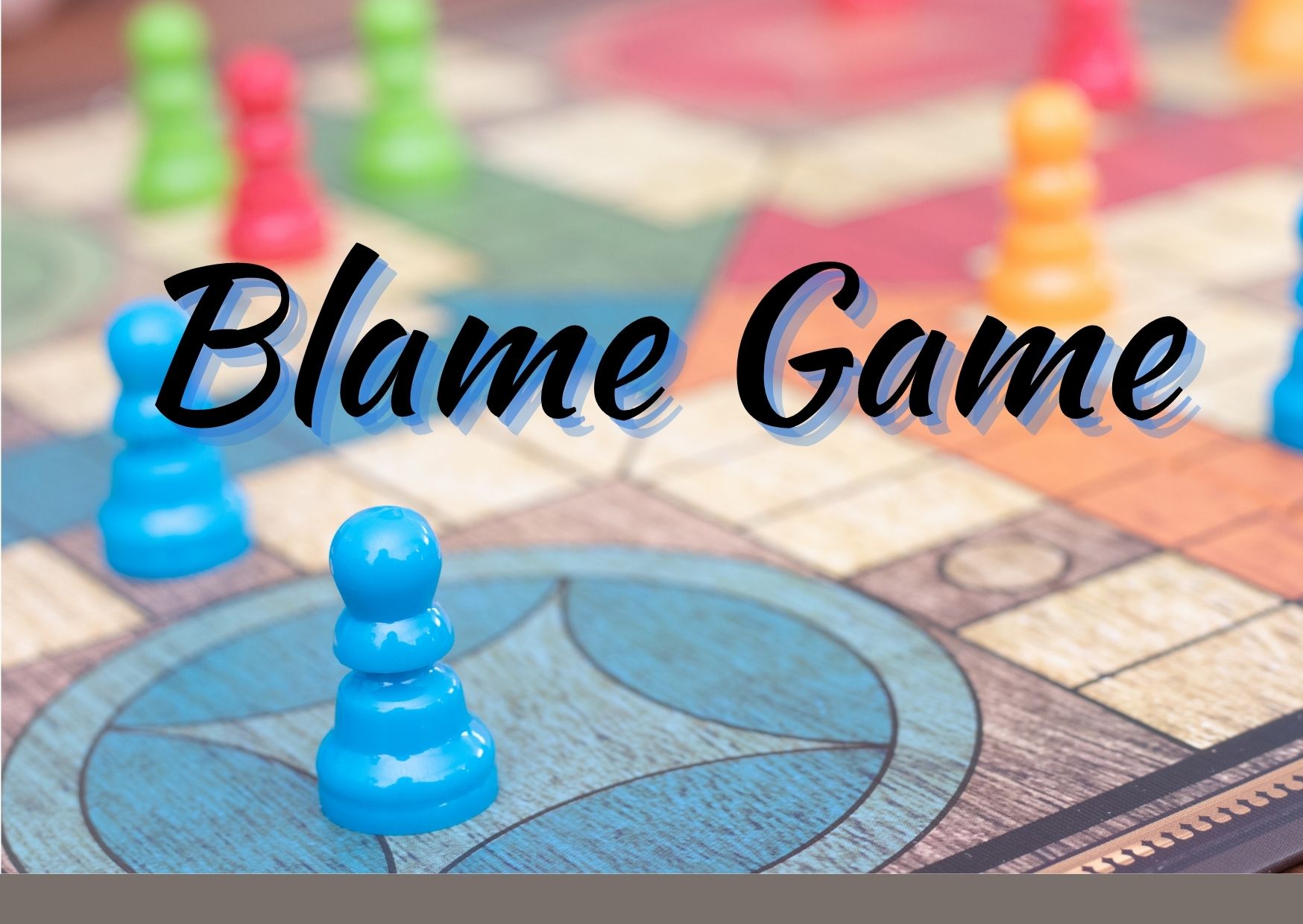
Blog 10.18.2021
Blame Game
The other day I asked my oldest son to pick up the toys on the ground in his room, his room was an absolute mess, and there was barely any room to walk around it. He replied, “I didn’t play with those toys.” His statement might have been true (probably wasn’t), but it had nothing to do with my request. I asked him to clean his room, not tell me why he isn’t responsible for the messy room. It is amusing how we excuse ourselves when we feel we are not personally liable for a situation. We justify our actions by placing the responsibility in someone else’s corner. We place the responsibility on the government, corporate structures, and our present culture. More often than not, we like to blame other people or other groups of people. We like to create a group of people with flaws or negative characteristics and vilify them. This concept is not new; it is the shifting of responsibility, and it has been happening from the beginning of humanity. Shifting responsibility is the easier route; you blame someone else and move on with your life. If you want to be truly nasty, you might call them a name or even hate them, but that doesn’t clean up the mess.
2 Corinthians 5:14-17
“[…] Christ’s love controls us. Since we believe that Christ died for all, we also believe that we have all died to our old life. 15 He died for everyone so that those who receive his new life will no longer live for themselves. Instead, they will live for Christ, who died and was raised for them. 16 So we have stopped evaluating others from a human point of view. At one time we thought of Christ merely from a human point of view. How differently we know him now! 17 This means that anyone who belongs to Christ has become a new person. The old life is gone; a new life has begun!”
Following Jesus is a complicated endeavor. This passage presents us with the notion of “dying to self,” putting away our selfish desires and worldly way of thinking. Putting off our selfish ways is complicated because we often don’t realize how our motivations are self-seeking. We want to preserve our lives and comfort at all costs; we contend for prestige, power, and profits. No matter how decent or admired these values are by the world around us, these motivations are selfish and unfruitful. We will follow Jesus as long as it doesn’t upset my current way of life. This mindset is where my son was; he did not want to stop playing and clean up his room, so he deferred to it not being his mess. The challenging route is doing what you can to get into the mess and start cleaning. The easy way is to blame someone else and move on with your current life.
Throughout God’s word, there is the element of personal responsibility, and this is pure wisdom and fundamental to godly living. God is unconcerned with power struggles, political agendas, or whose fault it is; sometimes, it is no one’s fault at all. In our present culture, there is a lot of emphasis on finding out who made the mess or getting the right person to clean up the problem; the mess never gets addressed. Therefore, God wants each one of us to die to ourselves and live for Him individually. Take a look at this passage from Jeremiah:
Jeremiah 10:23-24
“O LORD, I know the way of man is not in himself; It is not in man who walks to direct his own steps. 24 O LORD, correct me, but with justice; Not in Your anger, lest You bring me to nothing.”
This verse addresses that it does not lead to godliness if we make our own course. Our methods are self-seeking and selfish; Jeremiah says we should allow God to look at our steps with justice and correct our actions to bring our efforts in alignment with His steps. This direction is the only way we can truly clean up the messes around us. Left to our own devices, we will make excuses and blame someone else. We will blame the system, blame the government, blame agendas; however, Jesus lived in a place and time that was entirely hostile for his teachings in every facet. Yet, he was able to cut through that social, religious, and governmental disorder and heal the sick, blind, poor, and lame. He did this by accepting personal responsibility for a problem he did not create and carrying the cross. Let us not live for ourselves but live for Christ.
Great message. If we would all try to emulate Our Lord and Savior what a beautiful life it could be.